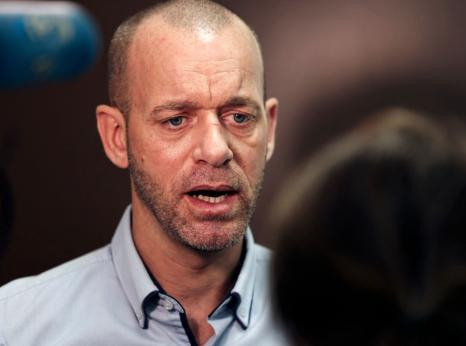IOPT: Palestinian Lawyer’s Detention Extended

Salah Hammouri is a French-Palestinian lawyer who lives in the neighbourhood of Kufr Aqab in East Jerusalem. He holds a Jerusalem residency permit and works as a field researcher for Addameer, a legal aid and prisoners’ rights NGO that, together with five other civil society groups, was baselessly declared by the Israeli government a “terrorist organization” in October 2021. UN human rights experts condemned this move as a misuse of counterterrorism measures and a “frontal attack on the Palestinian human rights movement, and on human rights everywhere”. The Israeli authorities have persistently harassed and targeted Salah Hammouri. Since 2000, Israeli authorities have detained Salah Hammouri multiple times, including twice when he was placed under administrative detention – for five months in 2004 and for 13 months in 2017 and 2018.
Israeli authorities have also violated his rights to freedom of movement and to family. He is also at risk of forcible deportation as the Israeli authorities have taken action to revoke his Jerusalem residency status. On 3 September 2020, the Israeli Ministry of Interior notified Salah Hammouri of its intention to revoke his permanent residency status on the grounds of “breach of allegiance” to the State of Israel. Salah Hammouri awaits a final ruling by the Israeli High Court, after exhausting the appeals process. According to his lawyer, there is concern that this most recent administrative detention order will be used against him to expedite actions towards his forcible deportation. On 26 July 2022, he was moved to a high-security prison – Hadarim – and was classified as a “high-security risk” prisoner. On 25 September 2022, he joined a mass hunger strike by 30 Palestinian administrative detainees to protest Israel’s unjust and cruel practice of administrative detention. He was placed in punitive solitary confinement as a result. He was detained in a dirty and pest-infested isolation cell measuring approximately four-square metres, without access to open air or natural light for 15 days. He was deprived of any contact with the outside world and was under permanent video surveillance during that time. In addition, he faced pressure by Israeli prison officials, who told him that if he accepted to leave his hometown – Jerusalem – and go to France, this detention would end.
In 2021, Salah Hammouri—along with five other Palestinian human rights defenders—was hacked with Pegasus, a spyware developed by Israeli cyber-surveillance company NSO Group.
Under administrative detention, individuals are detained by Israeli state authorities without intent to prosecute them in a criminal trial. Orders can be renewed indefinitely, and evidence is kept secret, meaning that detainees are not able to effectively challenge their detention and do not know when they will be released. From 1 January 2022 until 1 July 2022, hundreds of Palestinians held in administrative detention, including Salah, have boycotted Israeli military courts in protest at their detention without charge or trial.
Evidence collected by Amnesty International and other human rights groups over decades indicates that administrative detention is used as an intentional Israeli policy to detain individuals, including prisoners of conscience held solely for the exercise of their rights to freedom of expression and association and to punish them for their views and activism challenging the policies of occupation. According to Addameer, as of 10 October 2022, there were around 800 Palestinian administrative detainees, including three Palestinian Legislative Council members, held indefinitely in Israeli prisons without charge or trial. There were two women and six children amongst the total number of those held in administrative detention; the rest were men.